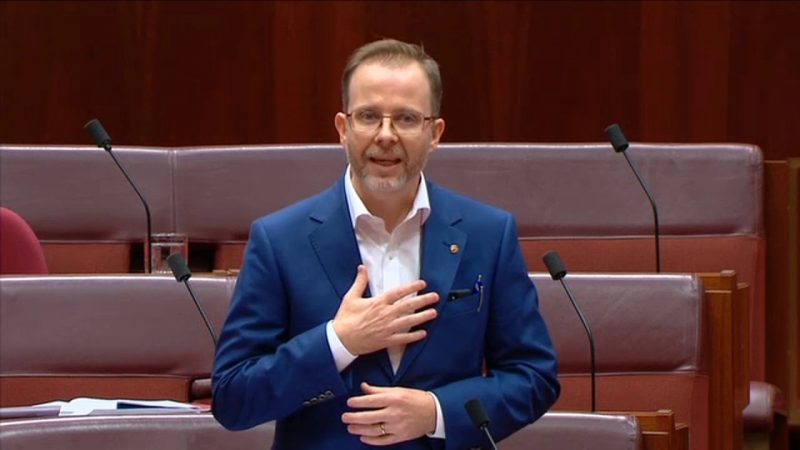Liberal Democrats senator calls for abolition of election advertising black out
Liberal Democrats senator Duncan Spender has condemned the election advertising blackout that begins on Thursday ahead of Saturday’s election, calling it “pointless”.
Claiming to be a “neutral commenter” because “I can’t afford any TV or radio advertising”, Spender was previously chief of staff to David Leyonhjelm, replacing his former boss in the Senate in March.

Duncan Spender entered the Senate in March, taking over from David Leyonhjelm, to whom he was previously chief of staff


I think we should have the Right to vote if we want to and not get fined if we don’t. None of the senates ever do what they say they’ll do if elected.
I personally find voting Pointless.
And why is it rude to ask someone who they voted for? I’m 36, A a Wife & A Mum + I’m not ashamed to say who I voted for:
As for the Ad’s – they are on TV, Billboards, websites Pop Ups, Social Media, Letterbox Flyers, Daily & Weekend Newspapers, Vote #1 Boards on Community Properties, Bumper Stickers etc every time Voting is about to take
For The Education Section In The Politicians Speeches – I Feel that Parents who decide to Homeschool their Child/Children should be Paid the same amount that a school would get for that Child to cover the costs of Excursions, Stationary, Art & Crafts, Tablet/Laptops/Desktop Computers, Camps with other Homeschool families etc in full every year, that way the child can not only learn about The World but experience it plus the different Cultures.
I would love if each side would not only do what they say they are going to in the time they are elected for but let us as voters Type or Write out at least 5 Things they would like to see them complete in their Election Time Frame…
What he really is saying is that the ban should be extended, and that rules about accuracy should be strengthened.
Politics across the world, as untruthful as it is historically, has probably NEVER been less truthful than right now.